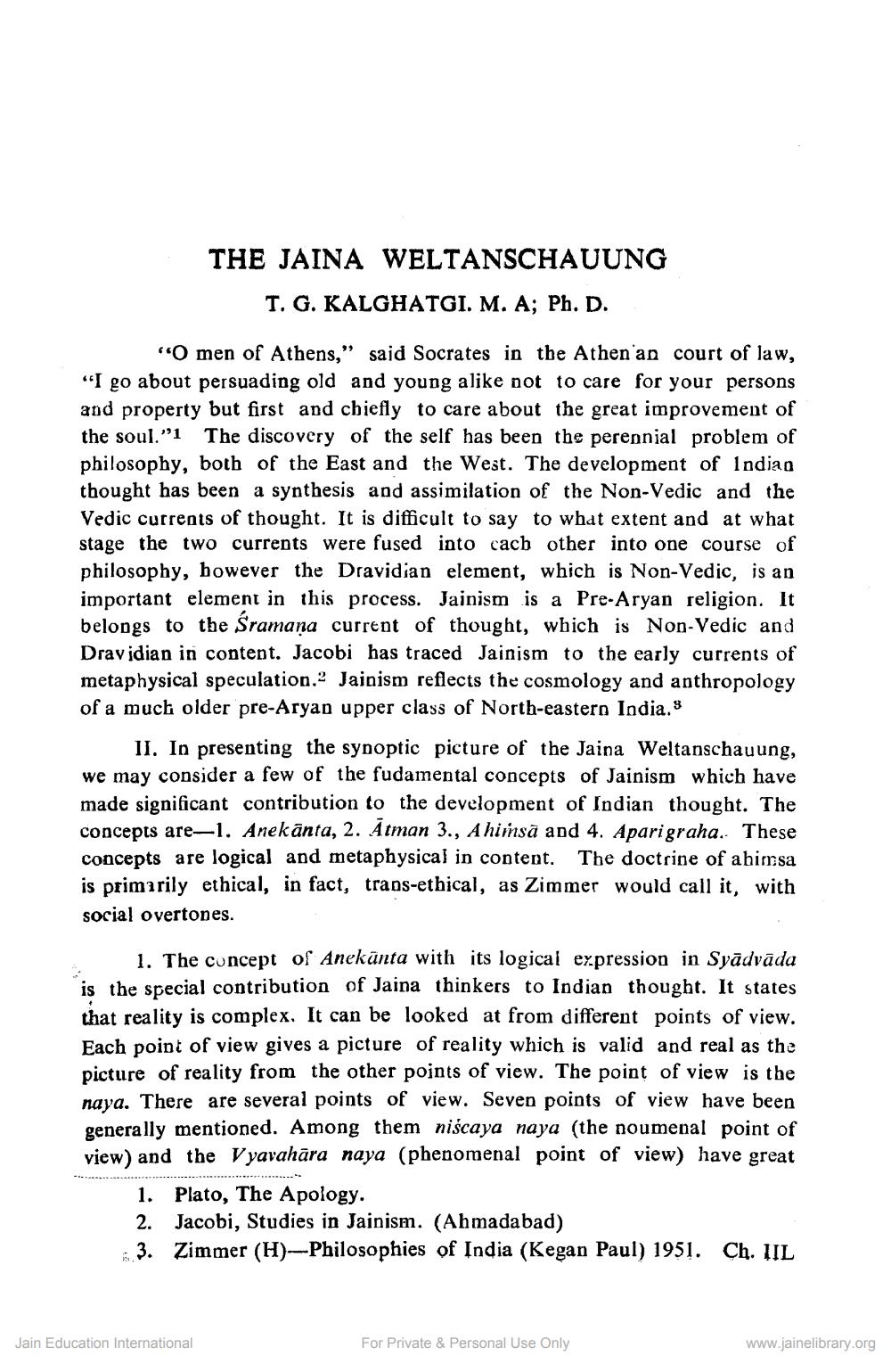________________
THE JAINA WELTANSCHAUUNG
T. G. KALGHATGI. M. A; Ph. D.
"O men of Athens," said Socrates in the Athen an court of law, "I go about persuading old and young alike not to care for your persons and property but first and chiefly to care about the great improvement of the soul."1 The discovery of the self has been the perennial problem of philosophy, both of the East and the West. The development of Indian thought has been a synthesis and assimilation of the Non-Vedic and the Vedic currents of thought. It is difficult to say to what extent and at what stage the two currents were fused into cach other into one course of philosophy, bowever the Dravidian element, which is Non-Vedic, is an important element in this process. Jainism is a Pre-Aryan religion. It belongs to the Sramana current of thought, which is Non-Vedic and Dravidian in content. Jacobi has traced Jainism to the early currents of metaphysical speculation.Jainism reflects the cosmology and anthropology of a much older pre-Aryan upper class of North-eastern India.
II. In presenting the synoptic picture of the Jaina Weltanschauung, we may consider a few of the fudamental concepts of Jainism which have made significant contribution to the development of Indian thought. The concepts are-1. Anekānta, 2. Atman 3., Ahirnsä and 4. Apari graha. These concepts are logical and metaphysical in content. The doctrine of ahimsa is primarily ethical, in fact, trans-ethical, as Zimmer would call it, with social overtones.
1. The concept of Anekanta with its logical expression in Syādvāda is the special contribution of Jaina thinkers to Indian thought. It states that reality is complex. It can be looked at from different points of view. Each point of view gives a picture of reality which is valid and real as the picture of reality from the other points of view. The point of view is the naya. There are several points of view. Seven points of view have been generally mentioned. Among them niscaya naya (the noumenal point of view) and the Vyavahāra naya (phenomenal point of view) have great
1. Plato, The Apology. 2. Jacobi, Studies in Jainism. (Ahmadabad) 8.3. Zimmer (H)-Philosophies of India (Kegan Paul) 1951. Ch. IIL
Jain Education International
For Private & Personal Use Only
www.jainelibrary.org




